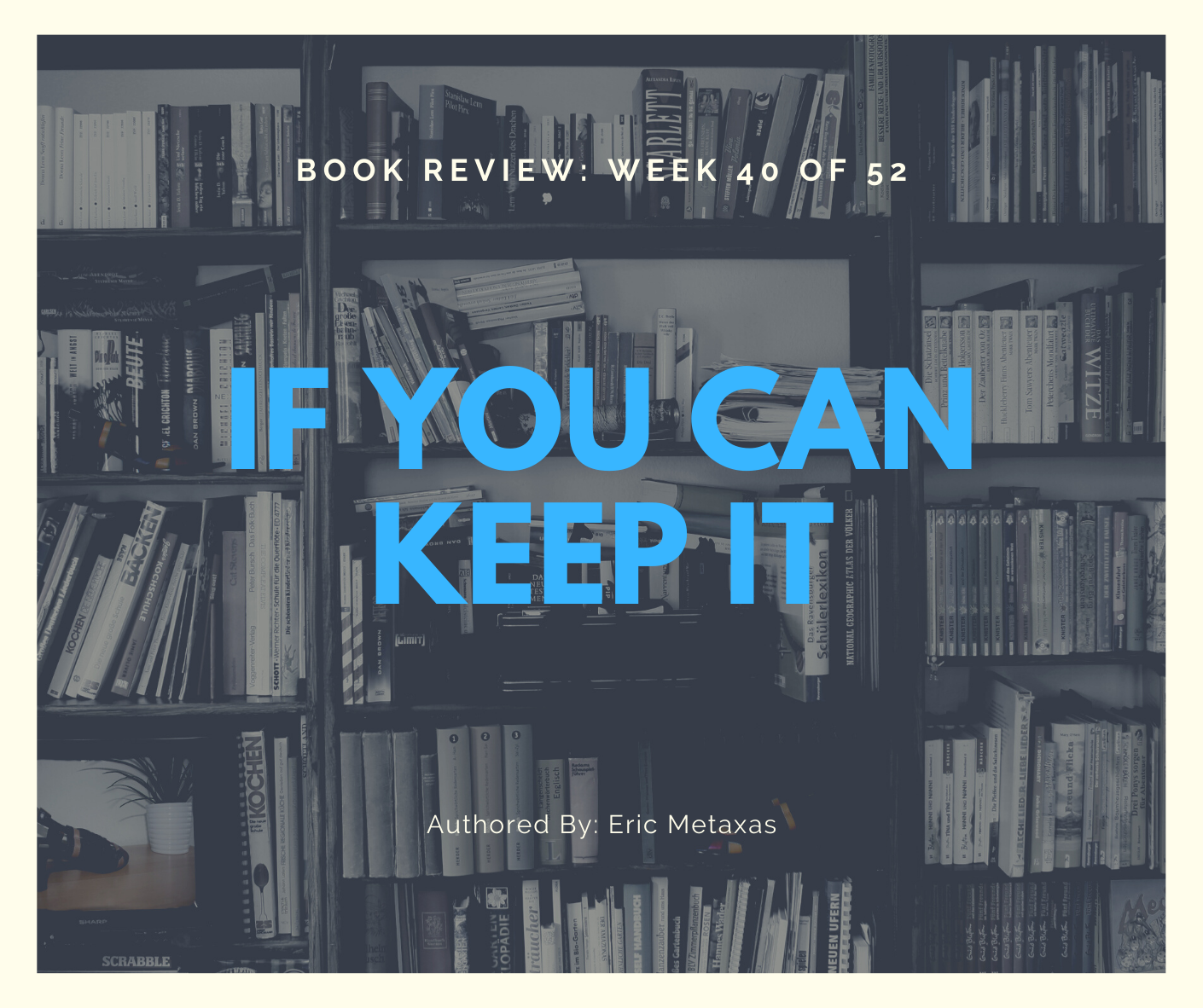If You Can Keep It: The Forgotten Promise of American Liberty
“What is required of us—of each one of us who are “we the people”—is something we have mostly forgotten”
America is in jeopardy of her people forgetting what is required of them.
In week 40 of 52 in the Tim Challies 2020 reading challenge. I find myself in Eric Metaxas' If You Can Keep It. As has become expected in his writing, Eric eloquently leads his readers through a Christian perspective of the United States' unprecedented founding.
Commenting on the book, television icon Dick Cavett states, "Profound and thoroughly entertaining… This book has made me think in ways that I haven't in years."
The main argument Eric makes is this.
We, the people of the United States of America,
have forgotten what is required of us.
If You Can Keep It
"Mrs. Powell put her question to Franklin directly: "Well, doctor," she asked him, "what have we got? A republic or a monarchy?"
Franklin… shot back: "A republic, madam—if you can keep it."
In this phrase from Benjamin Franklin to Mrs. Powell stems the origin of this book's title. America is to be a republic, kept secure not by the promises of the Constitution, but by the people who willfully choose to be self-governed by it.
"If we Americans cease to know we are part of that group charged with the terrible and wonderful burden of keeping this glorious promise, the promise is already being broken and will soon be irrevocably so."
American Freedom
"Ronald Reagan had a plaque on his desk that said "There is no limit to what a man can do or where he can go if he does not mind who gets the credit."
American Freedom is not absolute autonomy—that is chaos and anarchy.
"True freedom must be an "ordered freedom," at the center of which is what we call "self-government."
Self-government, Eric argues, is being forgotten. Not just the knowledge of it, but the willful active and embraced governing of the human self and the voluntary submission to the self-appointed government. It is a social contract, each American freely accepts for the sake of the community and nation.
The Golden Triangle
"Os Guinness… explains in his book A Free People's Suicide, the Golden Triangle of Freedom is, when reduced to its most basic form, that freedom requires virtue; virtue requires faith; and faith requires freedom."
The American experiment of unmatched liberty, Os argues, is based on the necessity of collective submission to virtue, faith, and freedom. When citizens forget, discard, or reject one aspect of the triangle, the entire form of previously known and experienced freedom fades.
One of the main characters in history that Eric touches on is Alexis de Tocqueville, who toured America and wrote extensively as an outsider looking in. One of his great statements about what he saw validates Guinness' Golden Triangle theory.
"Not until I went to into the churches of America and heard her pulpits aflame with righteousness did I understand the secret of her genius and power. America is great because she is good, and if America ever ceases to be good, she will cease to be great."
For Ronald Reagan, Os Guinness, Alexis de Tocqueville, and Benjamin Franklin, the secret to American Freedom was American virtue.














John Owen came from Welsh descent, was educated at Queens College, and became a renowned Puritan theologian, Oxford professor, and passionate pastor who lived from 1616 to 1683. In 1647, he wrote the exhaustive treatise The Death of Death defending Limited or Definite Atonement against the Arminian view of Universal Atonement or Unlimited Atonement.